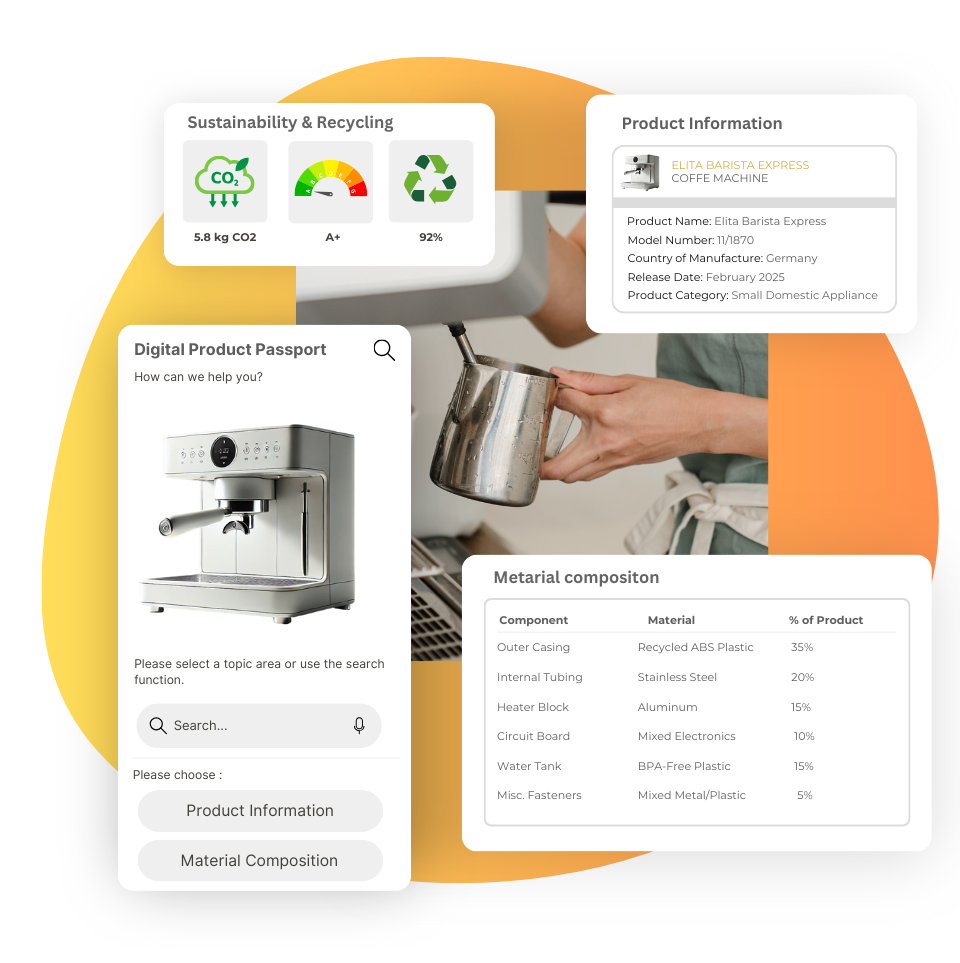
Digital Product Passport
From manufacturing to maintenance, sqanit lets you document, trace, and enrich your product lifecycle — while ensuring compliance with DPP and enabling data-driven sustainability efforts.
Trusted by leading companies

The Digital Product Passport is more than a label—it’s your product’s voice.
With sqanit, the Digital Product Passport becomes an interactive experience—not just a compliance checkbox. It gives every product the ability to communicate directly with its user, delivering manuals, service insights, usage data, and personalized support through a simple QR code.
This transforms passive product data into meaningful engagement, enabling you to reduce service costs, enhance sustainability transparency, and unlock new customer touchpoints
Integrated Digital Product Passport according to EU regulation.
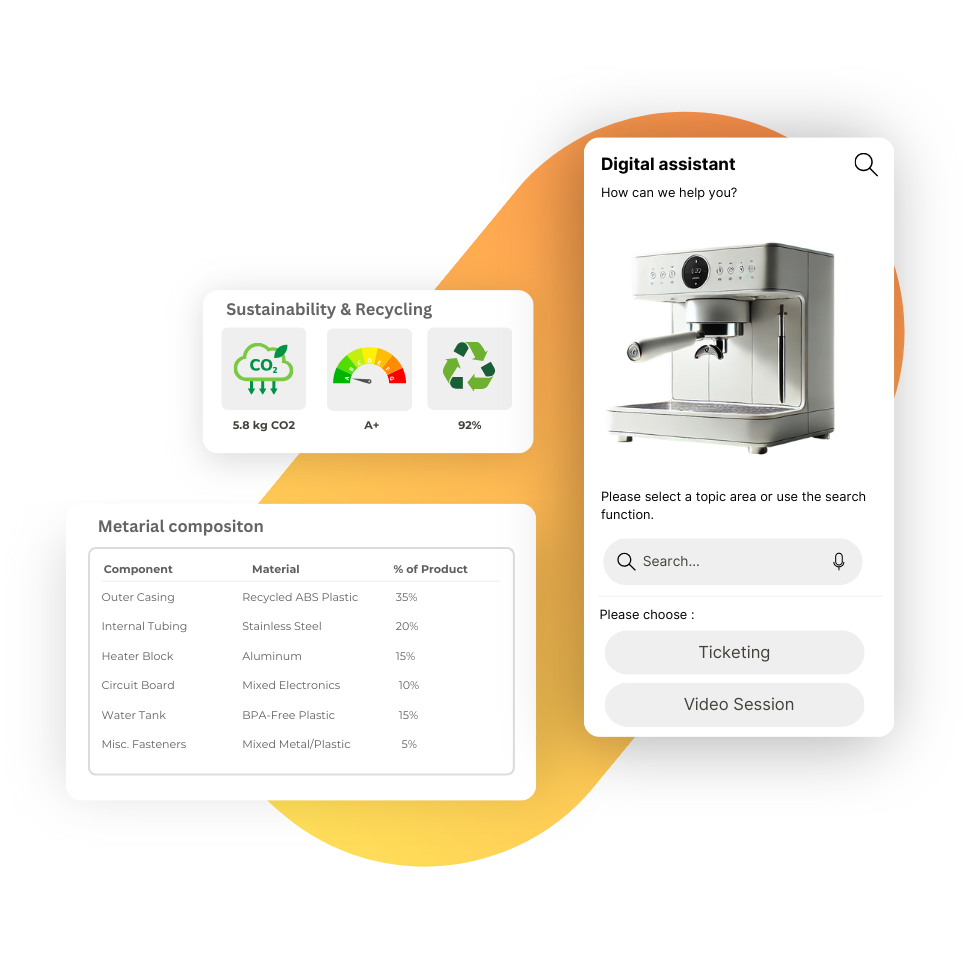
Sustainable
Empower your users and partners to make environmentally responsible decisions. sqanit provides structured access to:
- Material & component breakdown
- Carbon and energy footprints
- Recyclability and repairability scores
- End-of-life handling info
All in line with Digital Product Passport (DPP) requirements.
Engaging
Create Smarter Customer Connections
- QR/NFC-enabled easy product access
- Create support tickets in seconds.
- Resolve issues via AR video calls.
- Get instant AI-powered self-help.
DPP is just the start—sqanit enables engagement at every touchpoint.
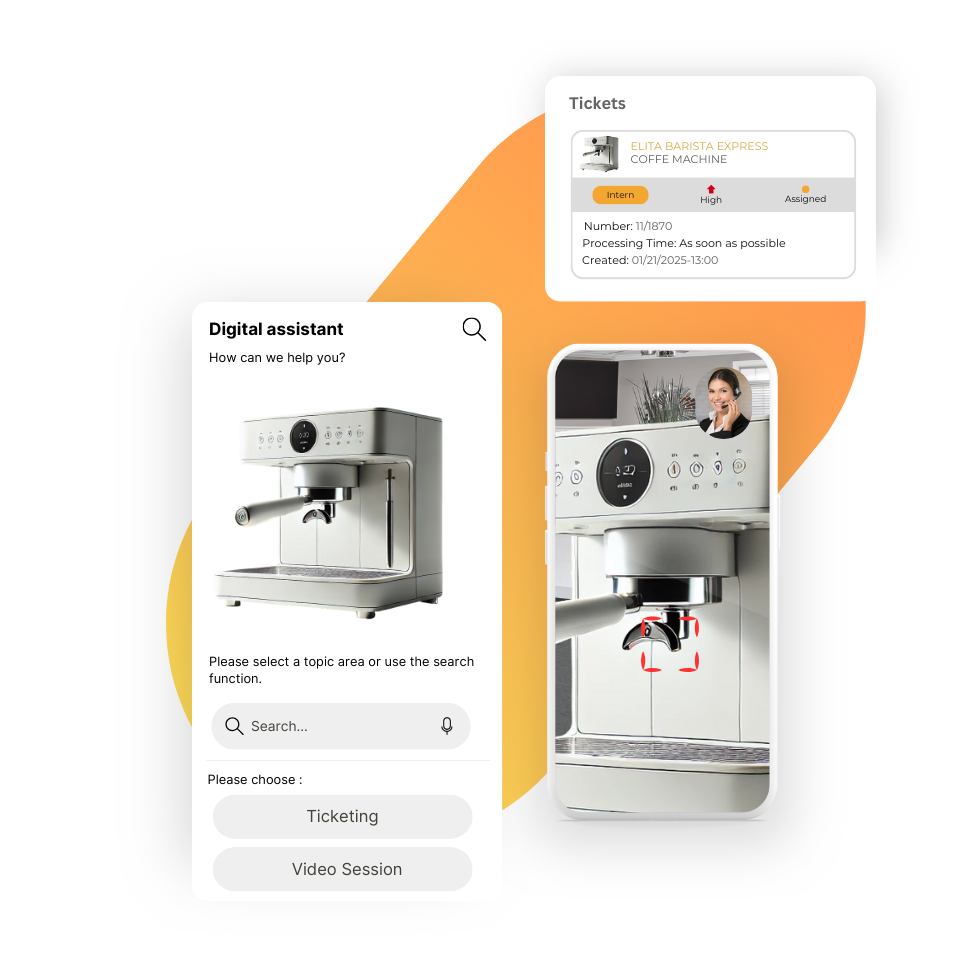
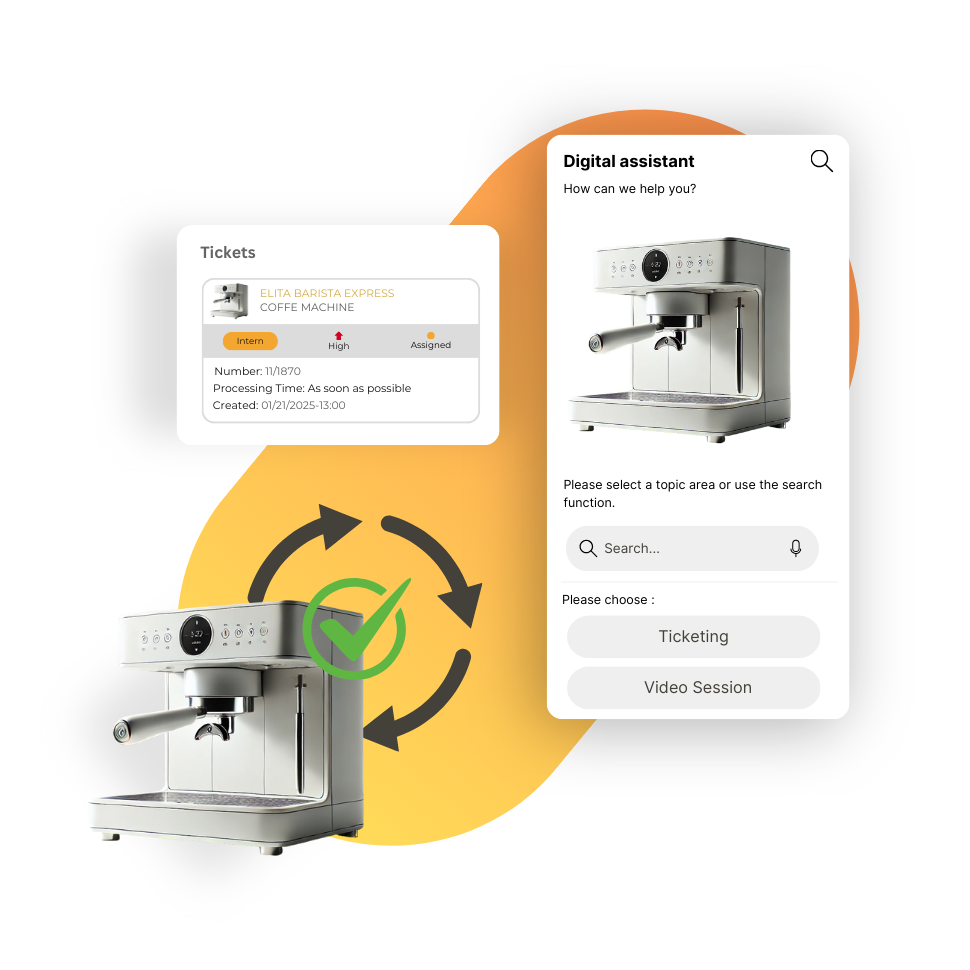
Trackable
From production to recycling, make every step traceable. With sqanit, you get:
- Complete service and maintenance logs
- Supplier and manufacturing data
- Product usage insights.
- End-of-life status updates
A single source of truth for the entire product journey.
Frequently Asked Questions
What is a Digital Product Passport (DPP)?
A Digital Product Passport (DPP) is a structured digital record that contains key information about a product’s materials, components, repairability, environmental impact, and more. It is part of the European Union’s strategy to promote circular economy and transparency across supply chains.
Who needs to implement DPPs?
Manufacturers, importers, and retailers operating in the European Union — especially in sectors like electronics, textiles, and batteries — will be required to provide DPPs for their products under the upcoming Ecodesign for Sustainable Products Regulation (ESPR).
Why is the EU introducing Digital Product Passports?
The EU aims to make products more sustainable, reusable, and recyclable. DPPs support this by making product data transparent and accessible across the value chain — from producers to consumers and recyclers.
What information does a DPP contain?
A DPP typically includes:
Material and component details
Product origin and traceability
Repair and maintenance history
Environmental footprint
Compliance and certification data
The exact content will vary by product category and regulation.
When will DPP requirements become mandatory?
The rollout of DPPs will begin in 2026, starting with priority sectors like batteries and electronics. Other sectors will follow as new EU regulations take effect.
How can sqanit help with DPP compliance?
sqanit enables companies to:
Document product lifecycles and service data
Centralize and manage all required DPP fields
Generate compliant digital product passports
Share relevant data with supply chain stakeholders
All in a streamlined and user-friendly platform.
Is DPP only for regulatory compliance?
No — beyond compliance, DPPs offer strategic benefits. They help build consumer trust, support sustainable branding, improve product lifecycle management, and open new business models around repair and reuse.
How is a Digital Product Passport accessed and used?
A Digital Product Passport is typically accessed through a QR code or digital link attached to the product or its packaging. Once scanned, it provides real-time access to verified product data — including materials, sustainability attributes, repair instructions, and more — empowering not only businesses but also consumers, recyclers, and regulators to make informed decisions throughout the product’s lifecycle.
Summarize your business so the visitor can learn about your offerings from any page on your website.
Quick Links
Get In Touch
123 Main Street
New York, NY 10001
- Email: contact@mysite.com
- Phone: 123-456-7890
- Hours: Mon-Fri 9:00AM - 5:00PM
© 2026 All Rights Reserved.
Related Blog Articles

Want to learn more?
- What the Digital Product Passport (DPP) is—and why it matters for manufacturers and service providers
- How upcoming EU regulations will impact your operations and after-sales processes
- Key steps to get your organization DPP-ready with practical use cases
